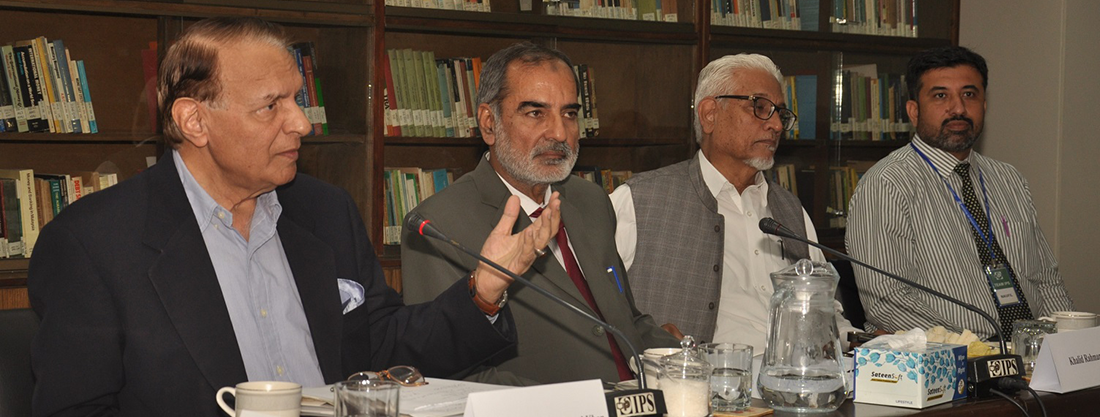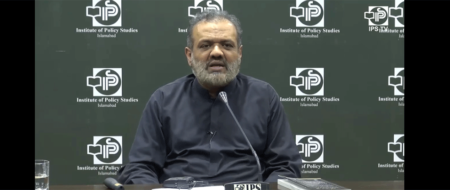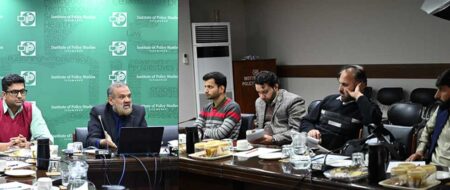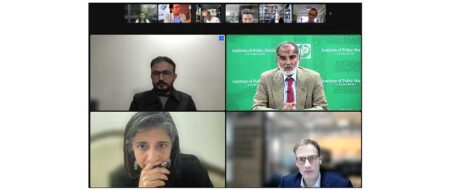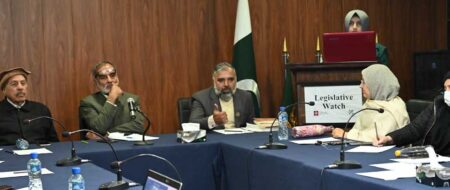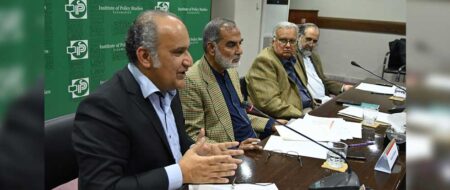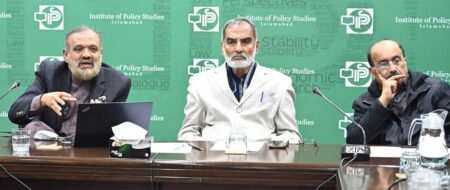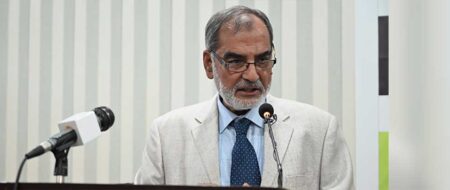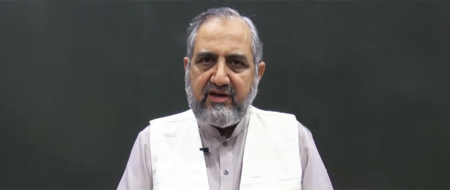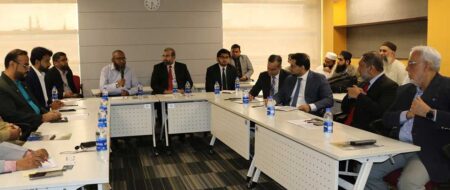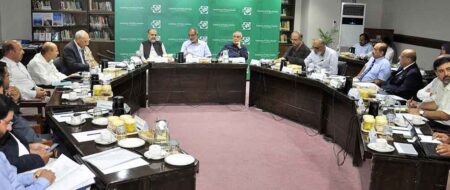World Peace Day: Escalating far-right extremism seen as a threat for regional and global peace
The consistent growth of far-right extremism across the globe is a visible sign of approaching danger, and the subsequent developments, such as the recent Hindutva-empowered actions taken by India in IoK, pose a serious threat for global peace.
The thoughts were unanimously voiced in the annual meeting of National Academic Council which was held at Institute of Policy Studies (IPS), Islamabad on September 21, 2019.
The session was addressed by Ambassador (r) Shamshad Ahmad Khan, Barrister (r) Saadia Abbasi, Prof. Dr. Anis Ahmad, vice chancellor, Riphah International University (RIU), Khalid Rahman, executive president, IPS, Dr Syed Mohammad Anwar, president, Maritime Study Forum (MSF), Mufti Munib-ur-Rehman, President Tanzeem-ul-Madaris Ahle Sunnat Pakistan, Prof Dr Fateh Muhammad Burfat, vice chancellor, University of Sind, Dr Sarah Safdar, member, Federal Public Service Commission, Peshawar, Air Cdr (r) Khalid Iqbal, Dr Qasim Bughio, former chairman, Pakistan Academy of Letters, Dr Syed Tahir Hijazi, vice chancellor, Muslim Youth University, Dr Waqar Masood, former chief economist of Pakistan, Fasih Uddin, former chief economist, Planning Commission of Pakistan, Mirza Hamid Hasan, former secretary, Ministry of Water and Power, and Amanullah Khan, former president, Rawalpindi Chamber of Commerce and Industry (RCCI).
The panelists were deeply concerned over the increasing role of far-right extremist groups all over the world which were hell bent to gain more power and to serve their vested political interests at any cost. Brexit, in the opinion of some speakers, was also fueled by the similar ideology whereas the siege of Kashmir by far-right Indian leader Modi was presented as a classic example of the Indian extremist regime.
The speakers urged the international community to keep a check over such looming threats sooner rather than later, maintaining that a failure in doing so can have far reaching regional as well as global impact.
It is pertinent to mention here that the National Academic Council is an is an assembly of experienced and established practitioners hailing from diverse disciplines, brought together on one platform from all over Pakistan by IPS. The advisory body graces the Institute’s work incessantly in form of its guidance, invaluable academic contributions and critical feedback.


